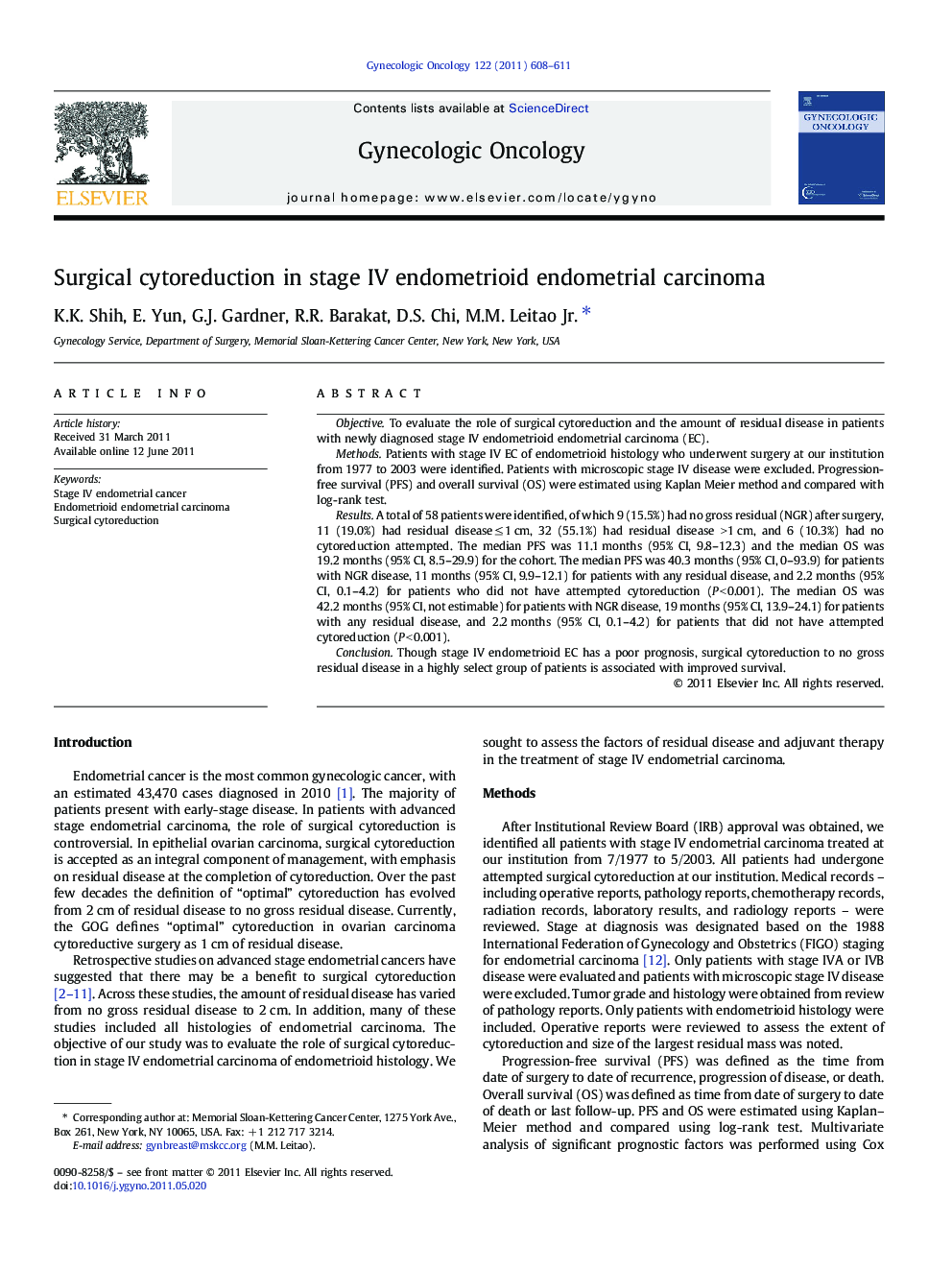| Article ID | Journal | Published Year | Pages | File Type |
|---|---|---|---|---|
| 3945577 | Gynecologic Oncology | 2011 | 4 Pages |
ObjectiveTo evaluate the role of surgical cytoreduction and the amount of residual disease in patients with newly diagnosed stage IV endometrioid endometrial carcinoma (EC).MethodsPatients with stage IV EC of endometrioid histology who underwent surgery at our institution from 1977 to 2003 were identified. Patients with microscopic stage IV disease were excluded. Progression-free survival (PFS) and overall survival (OS) were estimated using Kaplan Meier method and compared with log-rank test.ResultsA total of 58 patients were identified, of which 9 (15.5%) had no gross residual (NGR) after surgery, 11 (19.0%) had residual disease ≤ 1 cm, 32 (55.1%) had residual disease > 1 cm, and 6 (10.3%) had no cytoreduction attempted. The median PFS was 11.1 months (95% CI, 9.8–12.3) and the median OS was 19.2 months (95% CI, 8.5–29.9) for the cohort. The median PFS was 40.3 months (95% CI, 0–93.9) for patients with NGR disease, 11 months (95% CI, 9.9–12.1) for patients with any residual disease, and 2.2 months (95% CI, 0.1–4.2) for patients who did not have attempted cytoreduction (P < 0.001). The median OS was 42.2 months (95% CI, not estimable) for patients with NGR disease, 19 months (95% CI, 13.9–24.1) for patients with any residual disease, and 2.2 months (95% CI, 0.1–4.2) for patients that did not have attempted cytoreduction (P < 0.001).ConclusionThough stage IV endometrioid EC has a poor prognosis, surgical cytoreduction to no gross residual disease in a highly select group of patients is associated with improved survival.
Research highlights► Surgical cytoreduction in stage IV endometrial cancer may improve survival. ► Survival benefit of cytoreduction is independent of adjuvant chemotherapy.
